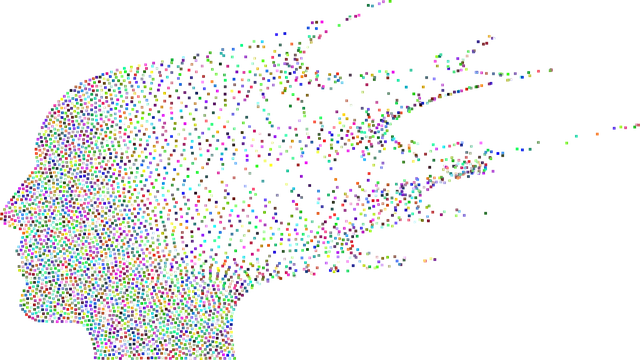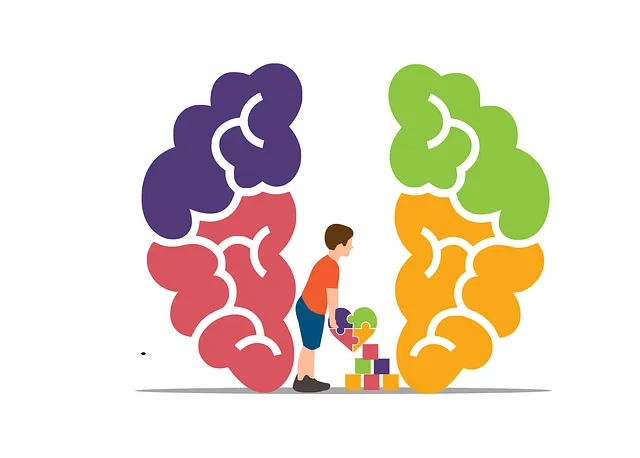The Kaiser Permanente mental health access center in Greenwood Village promotes resilience through the RFM (Recovery, Resilience, and Mental Health) model, offering structured paths to improved mental well-being. This holistic approach combines evidence-based practices with patient-centric care, empowering individuals to manage their mental health proactively. By tailoring services to diverse needs and fostering cultural competency, the center enhances community resilience, providing tools for crisis intervention, trauma processing, and positive self-talk. Greenwood Village's innovative initiatives like Mind Over Matter demonstrate the RFM model's success in building resilience and thriving amidst adversity, reflecting Kaiser Permanente's commitment to mental health advocacy.
“Discover the power of Resilience, Flexibility, and Mastery (RFM) as a game-changer in mental well-being. This article explores how the Kaiser Permanente Mental Health Access Center pioneered innovative care models, particularly relevant to communities like Greenwood Village. We delve into resilience-building exercises that empower individuals to navigate challenges. By understanding RFM’s impact, we uncover practical strategies for enhancing mental health resilience, offering a potential solution to fostering stronger, more adaptable communities, especially in the face of diverse psychological obstacles.”
- Understanding RFM and its Impact on Mental Health
- Kaiser Permanente Mental Health Access Center: A Model for Care
- Resilience Building Exercises: Empowering Individuals and Communities
- The Role of RFM in Navigating Challenges at Greenwood Village
Understanding RFM and its Impact on Mental Health

Resilience is a powerful tool for mental well-being, and the RFM (Recovery, Resilience, and Mental Health) model offers a structured approach to building this strength. This framework recognizes that individuals can enhance their ability to navigate challenges and adversity by focusing on recovery and resilience. At the Kaiser Permanente Mental Health Access Center in Greenwood Village, experts emphasize that understanding RFM is key to improving mental health outcomes.
The concept of Recovery involves recognizing that mental health is a journey, with setbacks and progress being natural parts of the process. It encourages individuals to develop coping strategies and skills to manage their mental health effectively. Resilience, on the other hand, equips people with the ability to bounce back from difficult situations, fostering self-confidence and a positive outlook. This can lead to significant improvements in self-esteem and social skills training, making it easier for individuals to engage and connect with others, which is vital for overall well-being.
Kaiser Permanente Mental Health Access Center: A Model for Care

The Kaiser Permanente Mental Health Access Center in Greenwood Village stands as a beacon of hope and innovation in mental healthcare. This center exemplifies comprehensive approaches to addressing mental health issues, offering a diverse array of services tailored to individual needs. By integrating evidence-based practices with a patient-centered focus, it provides a holistic model for care that’s gaining recognition across the industry.
The facility’s unique design reflects a commitment to Mental Health Policy Analysis and Advocacy, ensuring that every aspect aligns with best practices in mood management. Through its comprehensive programs, Kaiser Permanente fosters Mental Health Awareness, empowering individuals to take control of their well-being. This approach not only treats existing conditions but also promotes resilience, equipping individuals with the tools to navigate life’s challenges more effectively.
Resilience Building Exercises: Empowering Individuals and Communities

Resilience building exercises play a pivotal role in empowering individuals and communities to navigate life’s challenges with greater fortitude. These structured activities, often championed by institutions like the Kaiser Permanente Mental Health Access Center in Greenwood Village, go beyond mere stress relief. They equip people with the mental tools needed to overcome adversity, fostering a sense of self-efficacy that can be life-changing. By integrating these exercises into personal growth journeys, individuals gain a deeper understanding of their emotional responses and learn healthy coping mechanisms, thereby enhancing their overall resilience.
Through Crisis Intervention Guidance and Confidence Boosting strategies, resilience building exercises provide safe spaces for participants to process traumatic experiences, build supportive networks, and develop positive self-talk. This holistic approach not only strengthens individuals’ ability to cope with short-term crises but also equips them with the fortitude required to face long-term challenges. Ultimately, these exercises empower communities by creating a network of resilient individuals who can support one another during trying times, fostering a sense of collective strength and well-being.
The Role of RFM in Navigating Challenges at Greenwood Village

Greenwood Village, a vibrant community within Kaiser Permanente’s mental health access center, has recognized the profound impact of Resilience, Frequency, and Motivation (RFM) in navigating life’s challenges. This innovative approach empowers residents to build resilience by focusing on these key dimensions. By understanding an individual’s frequency of engaging in resilient behaviors and their motivation to persevere, healthcare providers at the center can tailor interventions effectively.
The integration of RFM principles, coupled with cultural competency training for healthcare providers, strengthens Greenwood Village’s commitment to holistic well-being. This includes Mind Over Matter principles, which teach coping skills development tailored to individual needs. Such initiatives ensure that residents are equipped not just to withstand but also to thrive amidst life’s adversities, reflecting the center’s dedication to fostering a resilient and supportive community within its walls and beyond.
The integration of Resilient Factor Model (RFM) and resilience-building exercises has proven to be a powerful tool in enhancing mental well-being, as demonstrated by the success of the Kaiser Permanente Mental Health Access Center. By focusing on RFM, individuals and communities can effectively navigate challenges, fostering resilience and empowering them to overcome adversity, as seen in the context of Greenwood Village. These strategies offer a holistic approach to mental health care, ensuring that folks have the tools they need to thrive even in the face of life’s complexities.






